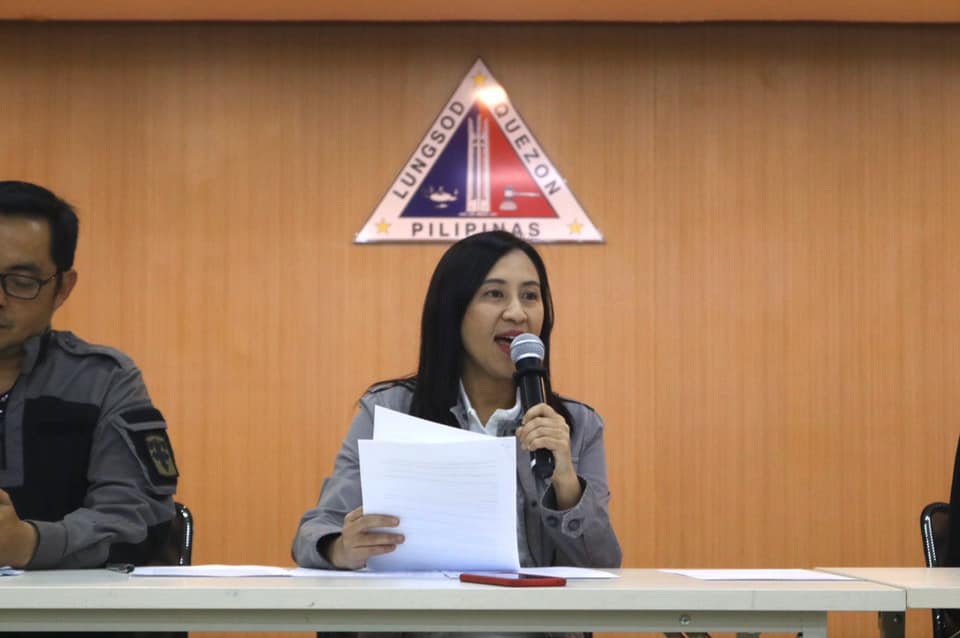
MANILA – Quezon City Mayor Joy Belmonte said protests will be allowed in the city during President Rodrigo Duterte’s fifth State of the Nation Address (SONA) next week, but these should be within certain parameters.
During the Laging Handa public briefing Tuesday aired over state-run PTV4, Belmonte said rallies and demonstrations on that day will be allowed because this has been the tradition.
“It’s been a tradition since time immemorial na may mga demonstrators talaga pag panahon ng SONA (there are demonstrations during SONA) so while we are coordinating with the PNP, we have come to the agreement dito sa NCRPO (National Capital Region Police Office) at QCPD (Quezon City Police Department) na papahintulutan ang (we will allow) demonstration provided that may strict adherence sa BP 880,” she said.
Batas Pambansa 880 or the Public Assembly Act of 1985 is an act ensuring the free exercise by the people of their right peaceably to assemble and petition the government for other purposes.
Belmonte said those planning to hold demonstrations on the day of the SONA should apply for a permit from the local government as well as from the Philippine National Police.
After that, as mandated by law, a meeting will be conducted together with the demonstrators.
“Ayon sa batas dapat may mga pagpupulong with the demonstrators kung ano yung mga parameters ng kanilang pag demonstrate, halimbawa kailangan na itong bilang lang ang dapat nandoon, etong mga oras lang, ginagamit (sa) mga demonstrations at itong mga lugar lang ang papahintulutan (According to the law, there should be a meeting with the demonstrators on the parameters of their demonstration, how many are allowed, the time, what will be used and the places where they can stage their demonstration),” she said.
Due to the coronavirus pandemic, Belmonte said they will be stricter this time.
She said the local government and the PNP shall be very strict in ensuring that demonstrators and protesters who join the rallies will be complying with the minimum health standards and protocols.
“Otherwise we have the right to remind them or even disperse them peacefully, of course, kung nakikita na natin na nagiging (If we see that they are becoming) public health hazards na sila because at the end of the day we do respect the right to expression, to free speech to air grievances but may kaakibat din po yan na (this has a corresponding) right to life, right to health na kailangan din nating protektahan bilang isang pamahalaan (that we need to protect as a government),” Belmonte said.
She added that ensuring the safety of the majority should be a shared responsibility of the government and of the protesters most especially in this time of a health crisis.
Depleting bed capacity for Covid-19 patients
Meanwhile, Belmonte said she received reports that bed capacity for Covid-19 patients in the city’s public hospitals is now in critical stage.
Earlier, the National Kidney and Transplant Institute and the St. Luke’s Medical Center in QC already declared full capacity for Covid-19 patients.
Belmonte assured that she will be paying attention to this problem.
Meanwhile, QC has three Hope quarantine facilities in the city with a 500-bed capacity and another one will be opened next week with a 250-bed capacity.
The Hope quarantine facilities cater to mild and asymptomatic Covid-19 positive patients.
Belmonte said the goal is for these quarantine facilities to help in decongesting hospitals, especially for those considered to be mild cases, and only patients considered to be severe and critical should be in the hospitals.
“QC, so far, is coping in the area of the mild and asymptomatic and our problem now is how to cope with the severe and critical but so far hindi naman unsolvable yung problem tingin ko magagawa naman ng resolution ito (the problem can be resolved), Belmonte said.